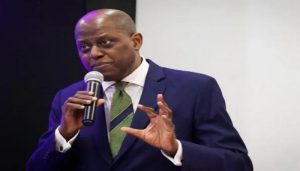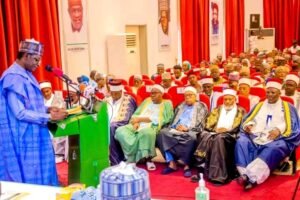
Stransact Chartered Accountants, Nigeria’s audit and accounting firm with affiliation with RSM International, yesterday, in conjunction with the Federal Inland Revenue Service (NRS), held an enlightenment forum for corporate taxpayers and business owners on how to navigate the new tax landscape.
At a one-day seminar/workshop for corporate taxpayers and business owners held in Lagos and themed, ‘Navigating Nigeria’s New Tax Landscape: Understanding the 2025 Tax Reform Acts and Mandatory E-Invoicing for Taxpayers’, speakers took a deep dive into the 2025 tax reform acts, looking at key changes and implications for businesses.
The event, which has over 250 physical and virtual participants, offered networking opportunities.
In furtherance of improving revenue generation and making Nigeria more investor-friendly, President Bola Ahmed Tinubu, on June 26, 2025, signed into law four tax bills passed by the National Assembly. They are the Nigeria Tax Act (NTA), the Nigeria Tax Administration Act (NTAA), the Nigeria Revenue Service (Establishment) Act (NRSA) and the Joint Revenue Board (Establishment) Act (JRBA).
The tax laws aim to simplify tax collection, reduce the tax burden on compliant businesses and reposition the country as a more attractive investment hub, while boosting revenue through a wider and fairer tax net.
While the effective date of the Tax Laws is set for January 1, 2026, a seminar/workshop like the one held yesterday offered an opportunity for participants to look at key changes and implications.
“The event opened my eyes to reliefs that come with the new tax laws. As HR manager, I have learnt of the rent relief, some on mortgages, and I can sensitise my colleagues on them, and they can earn more when the law comes into effect,” said Ifeanyi Ndukwe, HR specialist at Lake Oil.
In less than two weeks, no fewer than 1,000 companies, representing 20 per cent of over 5,000 eligible firms, are said to have embraced the solution and commenced integration with the FIRS MBS platform.
The e-invoicing solution went live on 1 August, following a successful pilot phase which began in November 2024.
Large taxpayers, which are companies with an annual turnover of N5 billion and more, are expected to be the first to be onboarded on the platform. The remaining large taxpayers are expected to come on board on or before November 1.
The panellists noted that the 30 per cent fund required by the new tax law to be deposited in an escrow account has no additional cost for oil and gas companies.
“The extra cost is just a misconception in my own opinion, the new law is to ensure that 30 per cent of the fund is kept with a Nigerian bank which can develop our country,” Gabriel Ogunjemilusi, a former FIRS director, said.
He explained that the 30 per cent is from existing funds mostly kept in foreign escrow accounts by the companies.
Under the new tax law, decommissioning/abandonment costs are deductible only if at least 30 per cent of the fund is deposited in an escrow account with an accredited Nigerian bank.
Operators are obligated to establish a dedicated decommissioning and abandonment fund with an independent financial institution, he said, adding: “The purpose of this fund is to ensure that sufficient resources are available exclusively for decommissioning activities in Nigeria.
“It was assumed that they could take it offshore. So, all of them then that way the law is given, making them make provision and take the money offshore and keep it in other countries’ banking sectors.”
The seminar workshop was set up for corporate taxpayers and businesses to enlighten them on how to navigate the new Nigerian tax laws.






